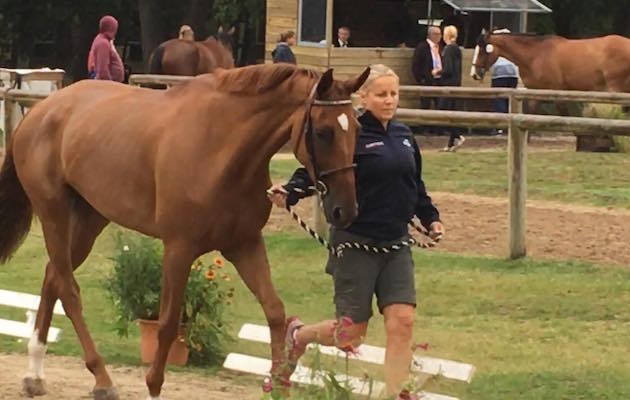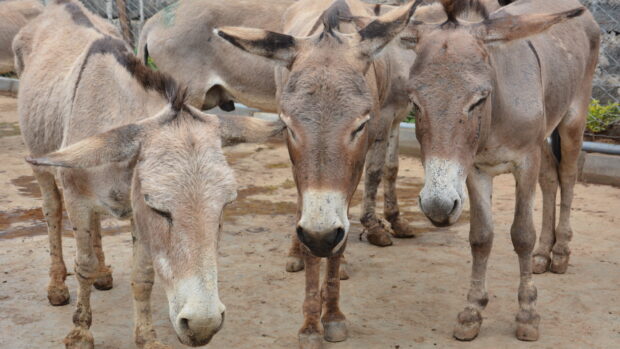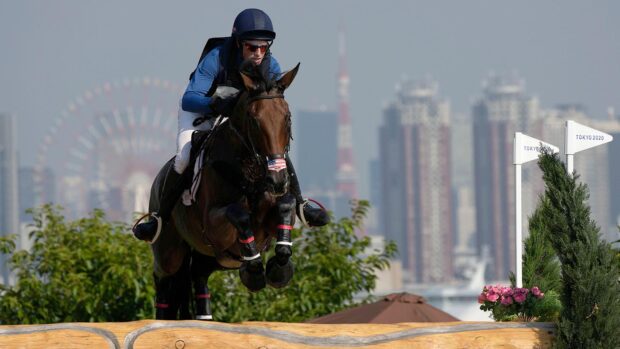The owner of a horse who exhibited severe colic symptoms when she was suffering from heatstroke wants to raise awareness of the condition.
Jo Linton’s seven-year-old mare Gwendyame had only jumped one class early last Saturday morning (7 July) and had drunk a bucket of water and been washed down before she was transported home.
She was then hosed again on arrival at her Hampshire yard and put in her stable but some time later, Jo realised she was not well.
“It was terrifying,” Jo told H&H.
“It looked like colic but she was standing with her back legs out behind her and I wasn’t sure if she was tying up.
“She was desperate to go down so I walked her round, in the sun, but I didn’t realise she was suffering adverse effects from the heat.”
Jo’s vet Eamon Smyth of Equivet gave Gwen electrolytes and medication, and told Jo to keep the hose on her.
“As soon as we got the water on her, she stopped trying to go down,” Jo said.
“She was a lot happier once the vet had treated her but we spent about 40 minutes hosing and scraping.
“It was absolutely terrifying and I think a lot of people haven’t experienced this so I wanted to raise awareness; I was walking her round as I thought it was colic but in the heat, that could make it worse.”
Jo added that owing to the amount Gwen had drunk and been hosed, and as she had only jumped one round early in the morning, heatstroke had not crossed her mind.
“It was so unlucky and I’d never seen it before,” she said. “I just want other people to be aware, to help other horses.”
Mr Smyth explained that heatstroke in horses has similar symptoms to colic in that the horse often wants to go down so it can be hard to differentiate without knowing the history.
“Competing and travelling in the heat can predispose them to it,” he told H&H, adding that horses “don’t always know when” to drink, especially at shows, or seek shade.
“Part of heatstroke is dehydration and even if the horse has drunk, it’s hard to know when travelling, competing and travelling back, how much water it needs,” he added.
Continues below…

Get colic advice straight to your phone for free with new app
The free app features advice from a top colic expert on spotting the signs of colic as well as how
Mr Smyth said the symptoms can be more severe with heatstroke than with impaction colic, which can also be caused by heat and dehydration, as food matter in the horse’s colon dries out.
His advice in either situation is to call the vet and to prevent either, horses can be encouraged to drink by adding mint or apple juice to water. They should also be kept in the shade and hosed down as much as possible after work and travelled in cooler parts of the day when possible.
Electrolytes can also be given but owners are warned that if electrolyte paste is given to a horse as if it does not drink afterwards, it can make dehydration worse.
For more on heat-related colic, see this week’s H&H magazine, out 12 July.





